Lee College of Engineering
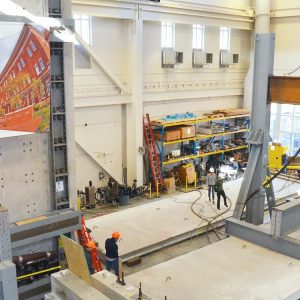
University’s 24th doctoral program is Ph.D. in civil engineering
UNC Charlotte has received approval to offer a Ph.D. in civil engineering; this is the University’s 24th doctoral program. This new degree will provide doctoral-level education for students seeking civil engineering careers in practice, research and teaching/academia.
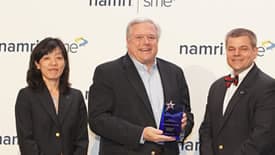
Engineering professor honored with lifetime service award
Scott Smith, chair of the Mechanical Engineering and Engineering Science Department, received the Outstanding Lifetime Service Award from the North American Manufacturing Research Institution of the Society of Manufacturing Engineers (NAMRI/SME) at the 46th annual North American Manufacturing Research Conference (NAMRC) held in College Station, Texas.
The award honors distinguished members for their long-term dedication and contributions to NAMRI/SME.
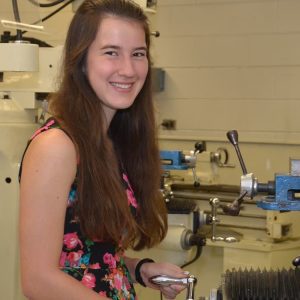
‘Engage ME’ helping multicultural engineers succeed
Engage ME, which stands for Engage Multicultural Engineers, is a relatively new initiative within the Lee College of Engineering; the effort brings together students, faculty, professionals and alumni of all races, cultures and genders.
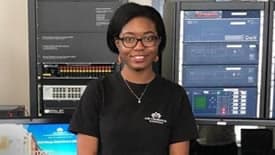
Doctoral student named ‘Young Clean Energy Innovator’
Tumininu (Tumi) Lawanson recently was named a Young Clean Energy Innovator of the Year by the Interstate Renewable Energy Council (IREC) at its Intersolar North American ceremony in San Francisco, California.
“Personally, I count it as a privilege and an honor to be recognized as one of two Young Clean Energy Innovators of 2018 by IREC,” said Lawanson. “I am especially grateful for the support of my research advisor, Dr. Valentina Cecchi, and the strong collaborative research environment provided at EPIC and the University.”
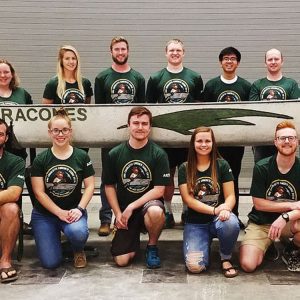
Engineering students to compete in national concrete canoe contest
A team of Lee College of Engineering students will join competitors from around the world at the 31st annual National Concrete Canoe Competition, being held June 23-25 at San Diego State University.
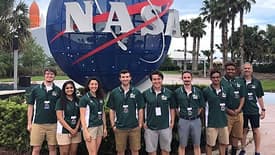
Engineering team places third at NASA Robotic Mining Competition
The UNC Charlotte Astrobotics Robotic Team, the 49er Miners, recently finished third in the Caterpillar Autonomy Award at the 2018 NASA Robotic Mining Competition at Kennedy Space Center. The team joined an elite group of few schools in the history of the competition to accomplish a fully autonomous mining run (approximately 50 colleges and universities have competed each year for the past nine years).

Second-place finish in national competition is best-ever for 49er Rocketry Team
The Lee College of Engineering’s 49er Rocketry Team recently placed second in the nation in the 2018 NASA Student Launch competition, the highest finish in the team’s history.

Engineering student, professor win best paper
Doctoral student Wahida Nasrin and Associate Professor Jiang (Linda) Xie, both from the Electrical and Computer Engineering Department, won a Best Paper Award from the IEEE Global Communications Conference (Globecom), held in Singapore. Their winning paper was titled “An Efficient Target Cell Selection Scheme for Next-generation Open-access Femtocell Networks.”

Ph.D. students take top honors at Duke University energy conference
Doctoral students Bhaskar Mitra and Pankaj Bhowmik won first and second place, respectively, at the recent Duke Energy Week poster presentation. Only the top 20 teams/individuals were given the opportunity to present during the conference, held at the Fuqua School of Business.

Researchers seeking innovative uses for coal ash
UNC Charlotte researchers are investigating how to improve coal ash for both recycling and restoration. John Daniels, chair and professor of civil and environmental engineering, and fellow faculty members are actively researching ways to address environmental impacts created by coal ash